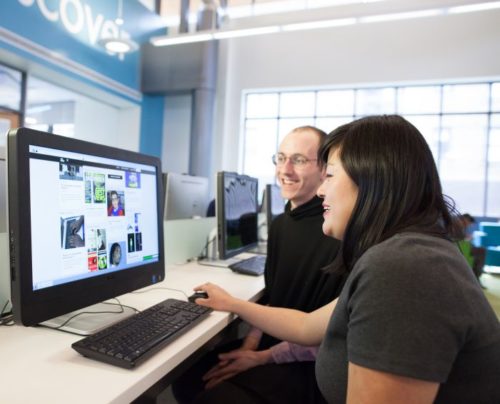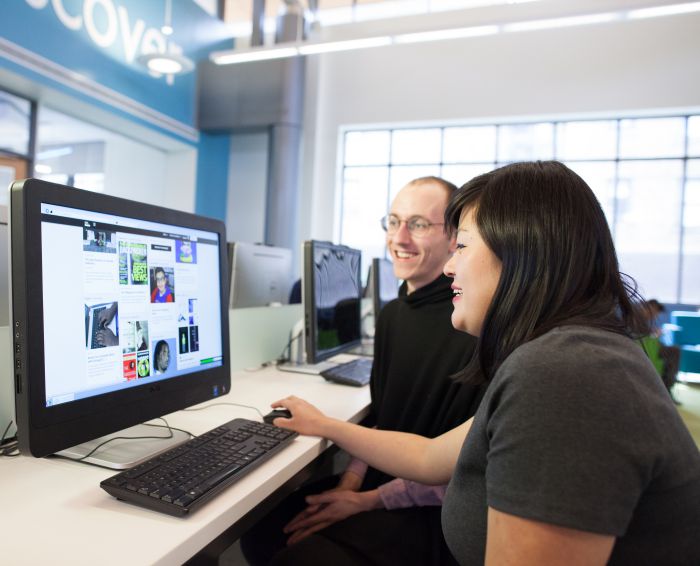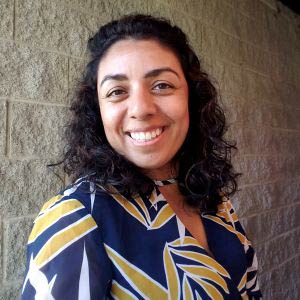The lack of digital readiness is a big problem. The Chicago Public Library has taken steps to address that. Now it’s time for the next phase.
Everyone knows how to send an email. Creating a resume in Microsoft Office? Simple. Don’t know something? Just Google it. All of these statements are based upon a single misconception: everybody has knowledge of digital tools.
Nearly one-third of Americans lack the skills to use next-generation online applications, according to a 2013 national survey conducted by John B. Horrigan, PhD. This means that approximately 70 million of us aren’t ready or able to acquire the digital skills needed to participate fully in web-based learning, commerce, and services.
Thus the “digital divide” encompasses not only the lack of technology, such as mobile devices and broadband; it also includes possessing the knowledge required to make best use of these ever-changing tools. Businesses, healthcare facilities, educational institutions and the government are directing more and more of their resources toward online services, making these user skills more essential every year.

“The Library has worked tirelessly to bring digital tools and software systems to the people of Chicago,” stated Mark Andersen, Director of Learning and Economic Advancement at Chicago Public Library. “We have free computer usage, free WiFi, and six locations offer wifi hotspots available for check out. Now it’s time for the next phase in this effort.”
Chicago Public Library recently unveiled its Digital Readiness Program. Alongside developers behind the online education hub Digital Learn (produced by the Public Library Association), they will bring module-based learning software to every CPL branch. The goal is to have individuals advance through each module at their own pace, all the while increasing their digital skills. What’s more, patrons will be able to access this software from any computer, not just those in the Library.
The customization of the Digital Learn software was supported in part through grants from Boeing Corporation, JP Morgan Chase, and the Joyce Foundation to the Chicago Public Library Foundation.
The software will help users learn everything from setting up an email account, to using a PC or a Mac and conducting an online job search.
With funding given to the Chicago Public Library Foundation from Connect Chicago, part of the Chicago Community Trust’s Smart Chicago Initiative, there will now be Cybernavigators (computer tutors) at each Library branch across the city. These CyberNavigators will be trained on the Digital Learn software and be ready to assist patrons who are anxious to build their digital skills.
“The huge picture is that we wanted this resource to be available city-wide,” said Andersen. “The Library is one starting point, but then the initiative will grow so other public access technology providers can use the same standard to develop digital skills.” Workforce development centers and Chicago Public Schools are partnering with CPL to test and launch the Digital Readiness Initiative.
This is a big step forward in addressing the issue of digital preparedness throughout the city, and we’re proud that it is beginning in Chicago’s libraries.


